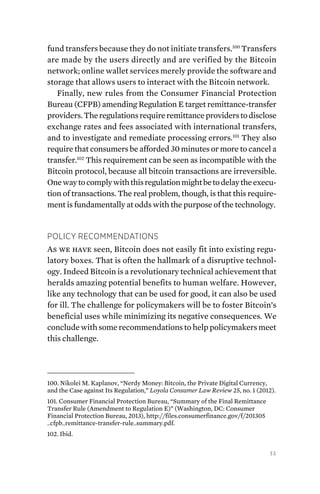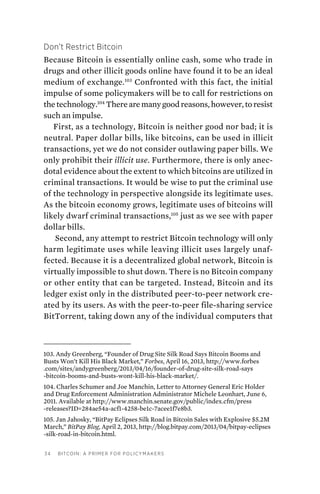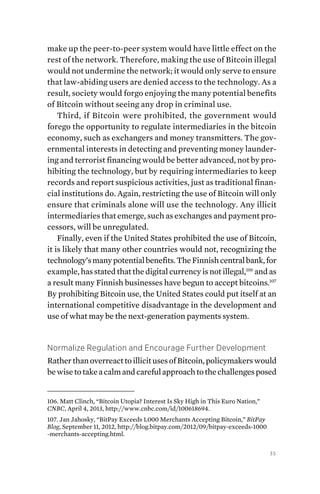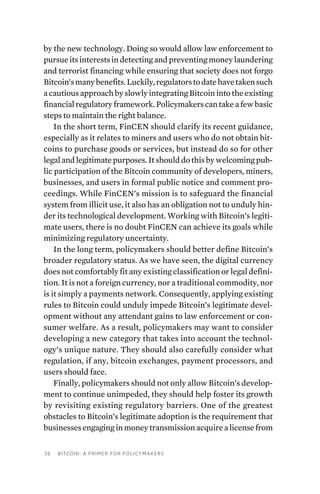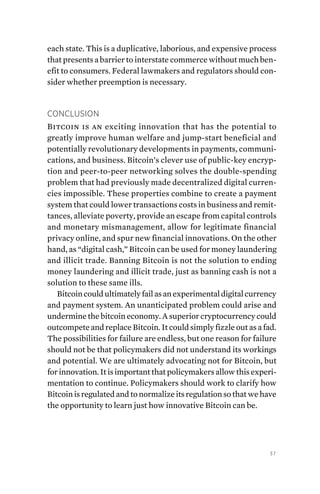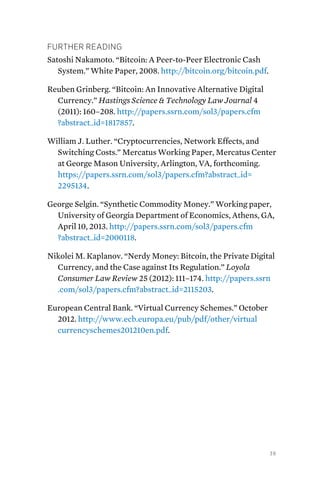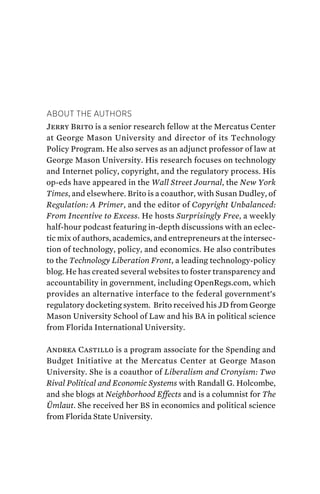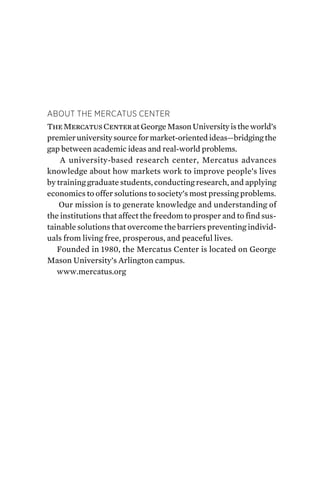The document provides an overview of Bitcoin as a decentralized digital currency which has rapidly grown in popularity and market capitalization since its inception. It highlights the innovative aspects of Bitcoin, such as its ability to solve the double-spending problem without intermediaries and the regulatory challenges it faces due to its pseudonymous nature. The paper discusses the current regulatory landscape and suggests potential policies to balance innovation and consumer protection in the Bitcoin economy.
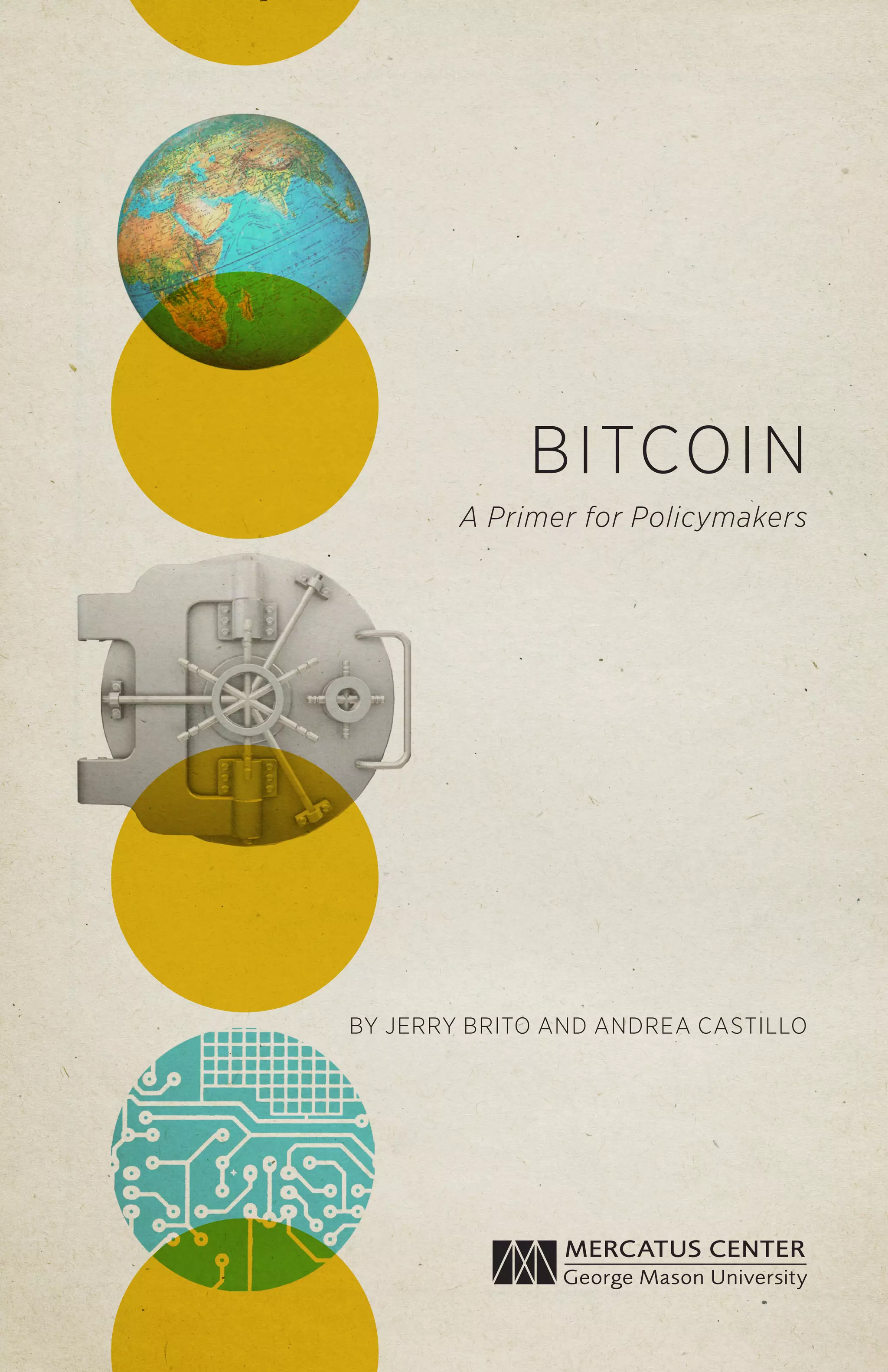

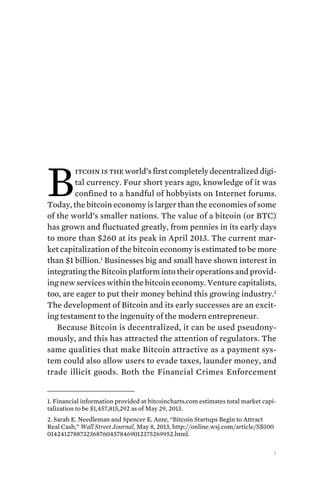
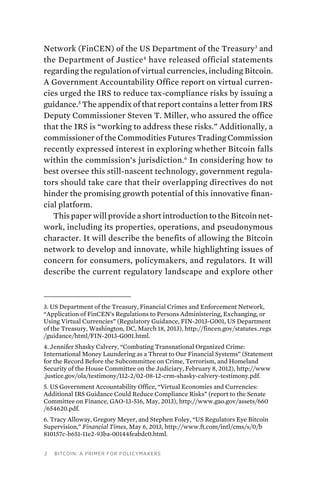
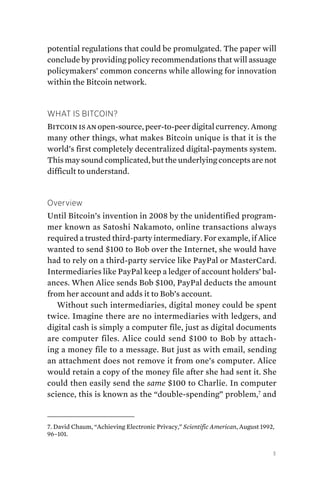
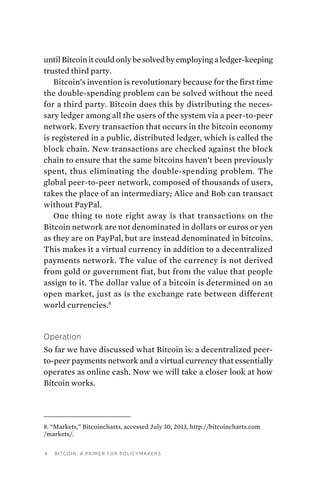
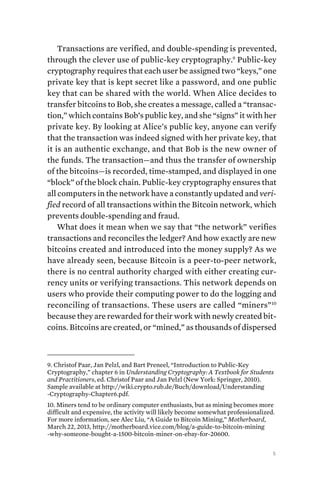
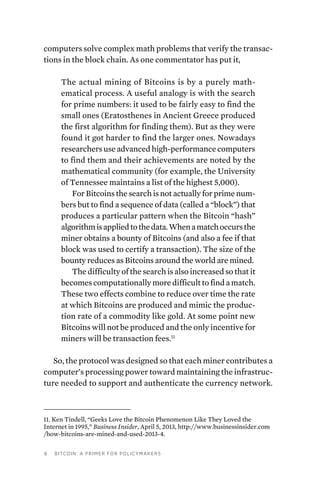
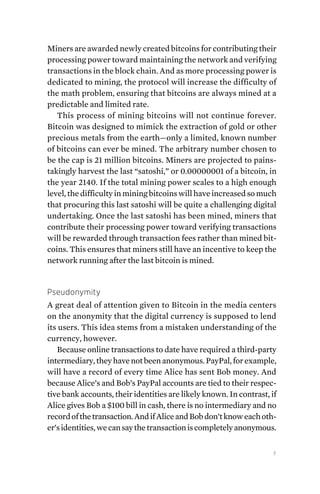
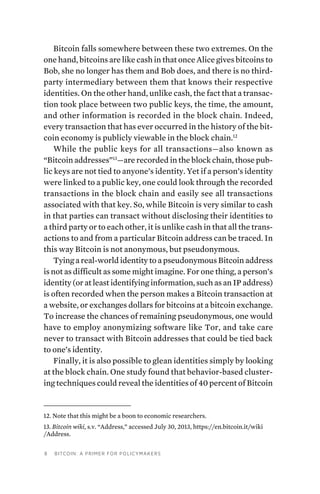
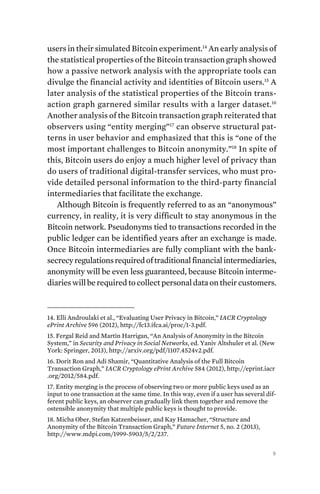
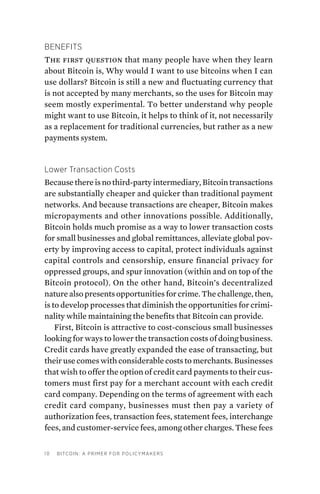
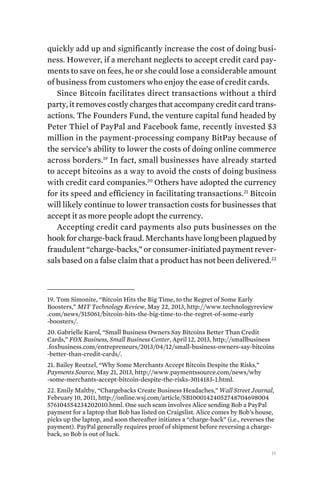
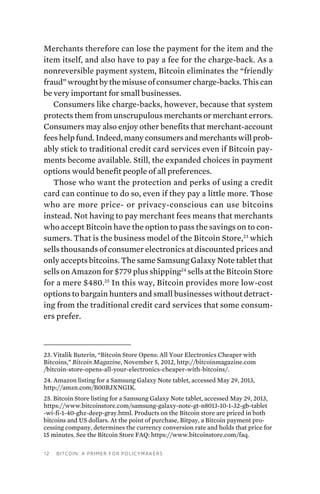
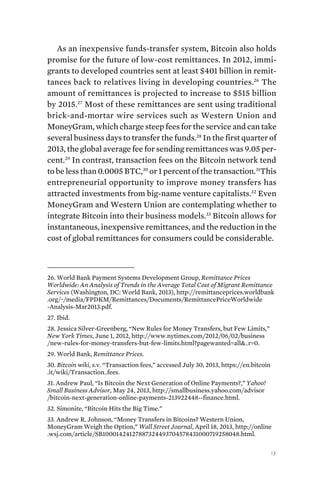
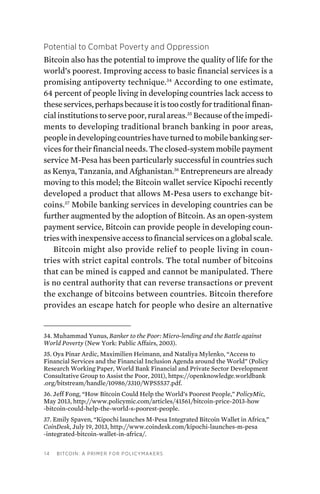
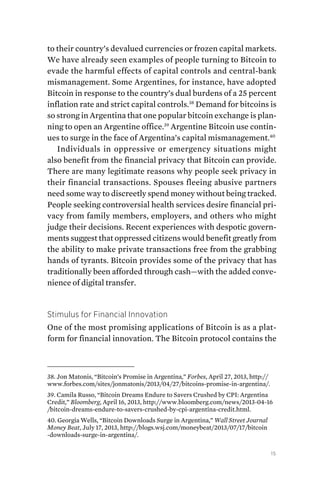
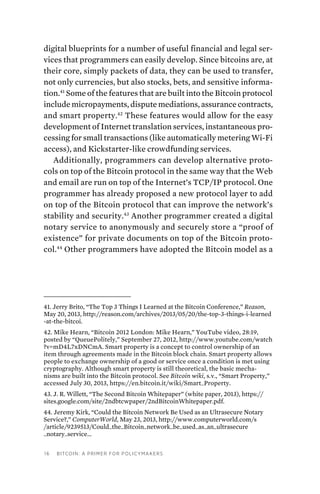
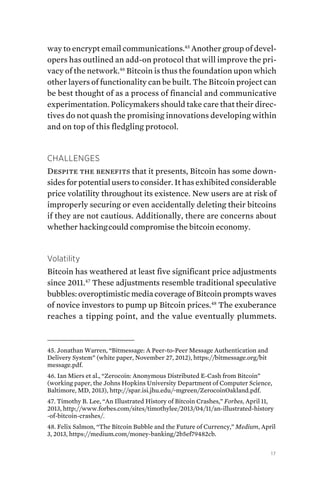
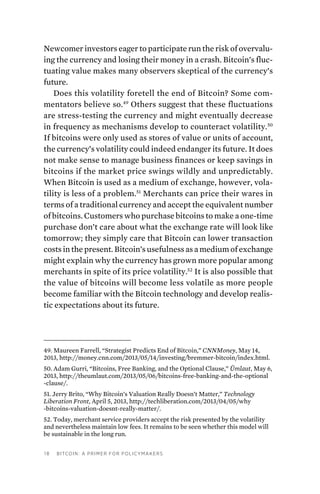
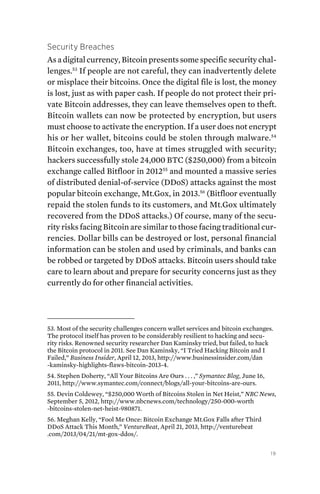
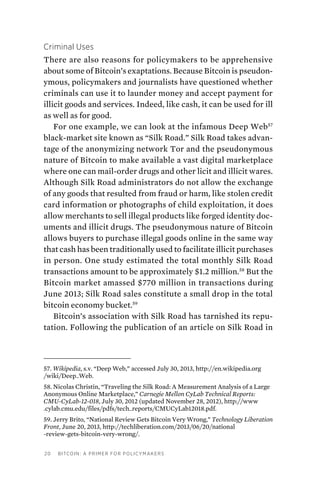
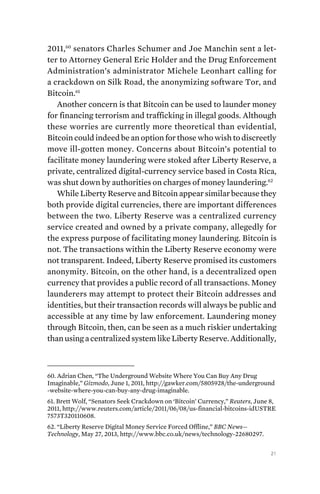
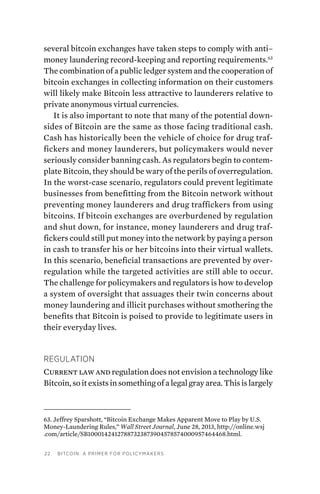
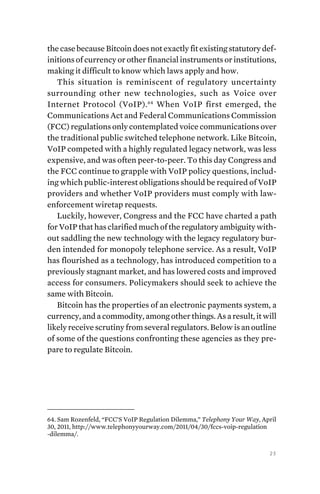
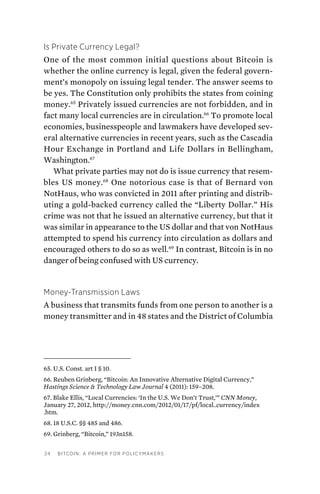
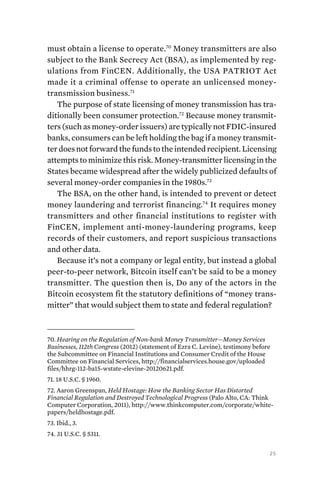
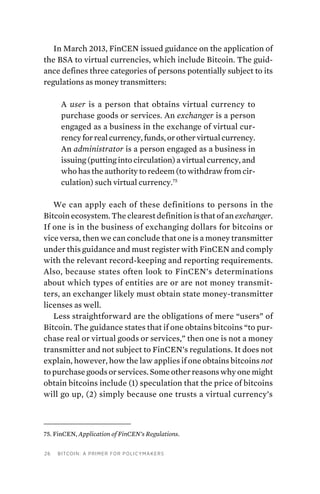
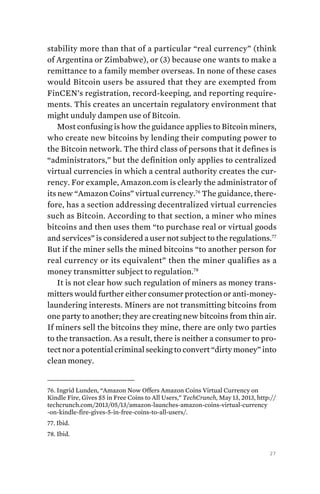
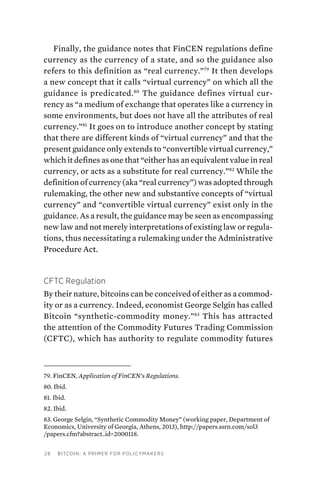
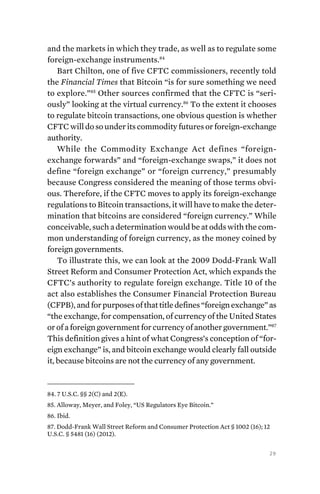
![30 Bitcoin: A Primer for Policymakers
The connection between foreign currency and govern-
ment issuance is commonplace. For example, the Treasury
Department’s definition of currency (adopted through rulemak-
ing, as noted earlier) is
the coin and paper money of the United States or of any
other country that is designated as legal tender and that
circulates and is customarily used and accepted as a
mediumofexchangeinthecountryofissuance.Currency
includes US silver certificates, US notes and Federal
Reserve notes. Currency also includes official foreign
bank notes that are customarily used and accepted as a
medium of exchange in a foreign country.88
This comports with the Uniform Commercial Code’s defini-
tion of “money,” which is “a medium of exchange authorized
or adopted by a domestic or foreign government [including] a
monetary unit of account established by an intergovernmental
organization or by agreement between two or more nations.”89
In contrast, the CFTC would have no problem treating bitcoins
as commodities. The Commodity Exchange Act defines com-
modities as all “goods and articles . . . and all services, rights, and
interests . . . in which contracts for future delivery are presently
or in the future dealt in,” except onions and motion-picture box-
office receipts.90
Therefore, bitcoins could certainly qualify as a
commodity because they are articles that can be traded and made
subject to futures contracts. That said, it is interesting to note that
bitcoins are unlike traditional commodities such as gold, corn,
or oil, which are tangible and have intrinsically valuable uses. It
is also important to note that the CFTC’s authority is over, not
commodities themselves, but commodity futures. An exchange
88. 31 C.F.R. § 1010.100(m).
89. Unif. Commercial Code §§ 1–201.
90. 7 U.S.C. § 1a (9).](https://image.slidesharecdn.com/bitcoin-130829155728-phpapp02/85/Bitcoin-32-320.jpg)
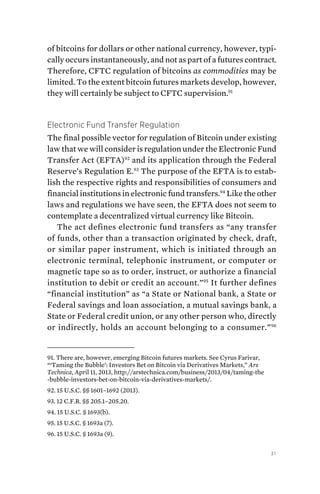
![32 Bitcoin: A Primer for Policymakers
These definitions, and the regulations they undergird, assume
that electronic fund transfers will necessarily involve “financial
institutions” and “accounts.” Bitcoin, however, runs counter to
that notion.
The Bitcoin system itself does not qualify as a “financial insti-
tution” because, as noted earlier, it is not a company or legal
entity but instead a global peer-to-peer network. As a result, a
Bitcoin address with which bitcoins are associated on the net-
work cannot be said to be an account of a financial institution.
Furthermore, as noted above in the technical discussion of how
bitcoins are transferred between addresses, in the Bitcoin system
there is no “financial institution” or other third party of any kind
that “debit[s] or credit[s] an account.” Electronic fund transfers
between addresses are carried out by users alone, who sign a
transaction with the private key associated with a Bitcoin address
under their control. The Bitcoin network merely confirms that
the transaction is legitimate.
While many users keep the “wallet files”97
containing their
private keys on their own computers or other devices,98
some del-
egate securing their keys to online wallet services.99
Such third-
party wallet services often also provide greater ease-of-use than
desktop Bitcoin software. Users typically create an “account” on
such a wallet service, and their Bitcoin addresses are associated
with those accounts. It is conceivable that such online services
could fit the definition of “financial institution” under the EFTA,
and thus be subject to the regulation. An argument could be
made, however, that these services are not engaged in electronic
97. Bitcoin wiki, s.v. “Wallet,” accessed July 30, 2013, https://en.bitcoin.it/wiki
/Wallet.
98. Matthew Sparks, “Winklevoss Twins Back Bitcoin as Bubble Bursts,”
Telegraph, April 12, 2013, http://www.telegraph.co.uk/technology/news/9989610
/Winklevoss-twins-back-bitcoin-as-bubble-bursts.html.
99. Bitcoin wiki, “EWallet,” accessed July 30, 2013, https://en.bitcoin.it/wiki
/EWallet.](https://image.slidesharecdn.com/bitcoin-130829155728-phpapp02/85/Bitcoin-34-320.jpg)
